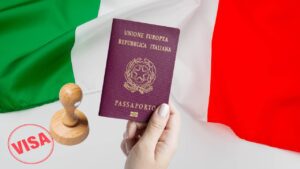As international education becomes more accessible, Italy stands out as a top destination for students seeking high-quality, affordable academic programs. With its historic universities, picturesque landscapes, and a wide range of English-taught degrees, Italy offers a unique blend of culture and education. One major advantage that draws international students is the possibility to study in Italy without IELTS, which is often a mandatory requirement in other European countries.
In this comprehensive guide, I will walk you through everything you need to know about studying in Italy without IELTS—including how to qualify, a list of top universities that offer this option, step-by-step instructions on the application process, and tips to boost your chances of admission. Dreaming of European education without the stress of standardized language exams, this is the right path for you.
Why Choose Italy for Higher Education?
Italy is a country rich in cultural history and academic excellence. It is home to some of the oldest and most respected universities in the world, such as the University of Bologna, which has been educating scholars since 1088. Italian universities are renowned for their research contributions, innovative teaching methods, and a growing number of English-taught programs. Whether you’re interested in art, fashion, engineering, or medical sciences, you’ll find globally recognized programs in Italy.
What makes Italy even more appealing is the affordable tuition fees, especially when compared to countries like the US, UK, or Australia. Public universities in Italy often charge between €1,000 and €4,000 per year, and the cost of living in cities outside of Milan and Rome is relatively low. Students also benefit from government and university-sponsored scholarships, discounted public transportation, and subsidized meals, making life as a student in Italy not only enriching but also cost-effective.
Is It Possible to Study in Italy Without IELTS?
Yes, it is entirely possible to study in Italy without IELTS, and many international students have successfully pursued their education in Italy without submitting IELTS or TOEFL scores. Italian universities have become increasingly flexible in their admission processes, especially with the rising number of applicants from non-native English-speaking countries.
Many universities in Italy understand that standardized tests may not always reflect a student’s true language ability. As a result, they offer alternative ways for students to demonstrate their English proficiency. If you’ve studied in an English-medium institution or can pass a university-specific language interview or assessment, you may be exempt from providing IELTS results. This inclusive approach helps widen access to education and allows students to focus more on their academic records and career goals.
Alternative Ways to Prove English Proficiency
Italian universities that waive IELTS requirements still need to ensure you can understand and communicate effectively in English. Therefore, they offer multiple alternatives for proving your proficiency. Below are the most common options:
1. Previous Education in English Medium
If your high school diploma, undergraduate degree, or master’s degree was taught entirely in English, you can request a “Medium of Instruction” certificate from your institution. This official document should state that English was the primary language used for instruction. Most universities in Italy accept this certificate in place of IELTS, especially for students from countries like India, Nigeria, Kenya, Ghana, and the Philippines.
2. University-Conducted Interviews or Language Tests
Some Italian universities may assess your English skills through an online interview or internal written test. These interviews are usually conversational and designed to evaluate your comprehension and speaking abilities. Passing this test or interview is often enough to qualify for admission into English-taught programs, especially at the postgraduate level.
3. Acceptance of Other Language Proficiency Certificates
In some cases, universities may accept alternative English proficiency tests, such as:
- TOEFL iBT
- Cambridge English exams (C1 Advanced, C2 Proficiency)
- Duolingo English Test
- PTE Academic
Although these aren’t always required, having one can strengthen your application, especially for competitive programs. Always check the specific university’s admission guidelines before applying.
Top Italian Universities That Accept Students Without IELTS
Italy hosts several globally ranked universities that accept students without an IELTS score, provided alternative conditions are met. These institutions are known for their international programs, diverse faculty, and student-friendly policies.
1. University of Bologna
As the oldest university in the Western world, the University of Bologna is a trailblazer in education. It offers a wide range of bachelor’s and master’s programs in English, including International Relations, Data Science, and Engineering. The university accepts students without IELTS if they provide a medium of instruction certificate or clear an English interview. Bologna also offers study grants and fee waivers for international students.
2. University of Padua
Ranked among the top 250 universities worldwide, the University of Padua is particularly known for science, medicine, and engineering. It has a strong international focus and offers more than 40 English-taught programs. Students can apply without IELTS if their previous education was in English or if they pass the university’s internal English assessment. The university is also generous with scholarships, including the Padua International Excellence Scholarship.
3. University of Milan
Located in one of Italy’s most dynamic cities, the University of Milan is ideal for students interested in business, economics, and life sciences. IELTS is not mandatory if students can provide sufficient evidence of English proficiency or qualify through university-organized tests. The university is also part of several international exchange programs and research collaborations.
4. University of Pisa
The University of Pisa is a highly regarded public institution offering numerous English-taught postgraduate courses. Students can bypass IELTS requirements by submitting a declaration from their previous institution or attending an online interview. Pisa is particularly attractive to science and engineering students due to its specialized faculties and research centers.
5. University of Florence
Known for its strong faculties in architecture, arts, humanities, and political science, the University of Florence offers multiple master’s programs in English. It allows students to prove their language proficiency through institutional interviews or certificates, offering flexibility for non-native speakers.
6. University of Turin
The University of Turin is one of the oldest and most prestigious universities in Italy. It offers various international programs, especially in economics, law, and health sciences. IELTS is not mandatory if you provide documentation of English-medium instruction or pass the university’s interview process.
7. Politecnico di Milano
Politecnico di Milano is Italy’s top engineering and design university, known for programs in Architecture, Civil Engineering, and Industrial Design. While IELTS is typically required, it can be waived if you provide a certificate from your previous school or pass the university’s internal test. The university is extremely competitive and offers numerous scholarships for merit-based applicants.
Step-by-Step Guide: How to Apply to Italian Universities Without IELTS
Applying to an Italian university without IELTS is a systematic process. Here’s a detailed guide to help you succeed:
Step 1: Shortlist Universities and Courses
Begin by identifying the course you want to pursue and the universities offering it in English. Visit each university’s official website to review eligibility criteria, course duration, fees, and whether they accept students without IELTS.
Step 2: Review Language Requirements
Look for the university’s specific language policy. Make sure they accept a medium of instruction letter or conduct interviews/tests for English proficiency. Save official documents or admission policy pages for your reference during the visa process.
Step 3: Prepare Your Application Documents
You will typically need:
- Academic transcripts and diplomas
- Passport copy
- Updated CV/resume
- Motivation letter or statement of purpose
- Letters of recommendation
- Medium of instruction certificate or other proof of English proficiency
Some universities may also require you to submit a portfolio (especially for arts and architecture) or entrance exam scores.
Step 4: Submit Application Online
Most universities have online application portals. Some use centralized platforms like Universitaly, while others operate through dedicated portals like Apply@Polimi for Politecnico di Milano. Follow instructions carefully and upload all documents within the deadline.
Step 5: Attend Language Interview or Internal Test
If required, be prepared to attend a video interview or take an online test. This will determine your final eligibility for English-taught courses without needing IELTS.
Step 6: Wait for the Admission Decision
Once submitted, universities typically take 4–8 weeks to process applications. If selected, you’ll receive an official Letter of Admission, which is essential for your visa application.
Scholarships for International Students in Italy
Italy offers a variety of scholarships for international students, and many of them do not require IELTS for eligibility. These scholarships can significantly reduce your financial burden.
Popular Scholarships Include:
- Italian Government Scholarships for Foreign Students – Covers tuition, monthly stipend, and medical insurance.
- DSU Regional Scholarships – Offered by local governments based on income, includes tuition waiver, free meals, and accommodation.
- Invest Your Talent in Italy – Supports students enrolling in English-taught master’s programs in fields like engineering and economics.
- University-Specific Scholarships – Offered directly by universities like Bologna, Padua, or Milan, and are based on academic merit or need.
To apply, you typically need proof of income, academic transcripts, and a strong motivation letter.
Student Visa Requirements for Studying in Italy Without IELTS
Once admitted, you must apply for a Type D Student Visa. The absence of IELTS does not affect your visa approval if the university has accepted you under alternative language criteria.
Documents Needed for Visa Application:
- Valid passport (with at least 2 blank pages)
- University admission letter
- Proof of sufficient financial means (approx. €6,000–€8,000/year)
- Proof of accommodation in Italy
- Health insurance coverage for one year
- Medium of instruction letter or English proficiency certificate (if applicable)
- Completed visa application form and passport photos
Visa processing usually takes 4–6 weeks, so apply as soon as you receive your admission letter.
Italy Student Visa: Eligibility, Documents & Application Tips
From flexible admission policies to generous scholarship schemes and globally recognized degrees, Italy is an excellent choice for anyone looking to study abroad without the hurdles of IELTS. If committed to pursuing higher education in Europe and want a practical, cost-effective solution, then Italy is the ideal destination for you.
FAQs
1. Can I study in Italy without IELTS?
Yes, many Italian universities allow students to apply without IELTS if they can prove English proficiency through other means like a Medium of Instruction (MOI) certificate or by passing an English interview.
2. What is the Medium of Instruction (MOI) certificate?
An MOI certificate is an official document from your previous school or university confirming that your education was conducted entirely in English. Many Italian universities accept this instead of IELTS.
3. Which universities in Italy accept students without IELTS?
Top universities such as the University of Bologna, University of Padua, University of Milan, University of Pisa, and University of Turin accept students without IELTS under certain conditions.
4. Do I still need to prove my English proficiency?
Yes, even if IELTS is not required, you must prove your English ability through MOI, an interview, or internal university tests to be eligible for English-taught programs.
5. Will studying without IELTS affect my student visa?
No. If your university accepts your English proficiency without IELTS and issues you an admission letter, it will not affect your student visa application.
6. Are scholarships available for students applying without IELTS?
Yes. You can still apply for scholarships like DSU Regional Grants, Italian Government Scholarships, and university-specific awards even if you don’t submit IELTS scores.
7. Are English-taught programs widely available in Italy?
Yes, many Italian universities offer undergraduate and postgraduate programs in English, especially in fields like engineering, economics, business, and arts.
8. Is it harder to get accepted without IELTS?
Not necessarily. As long as you meet the university’s alternative English requirements and academic qualifications, you have a strong chance of being admitted.
9. Can I work part-time while studying in Italy without IELTS?
Yes, international students can work up to 20 hours per week during their studies in Italy, regardless of whether they submitted IELTS scores.
10. How do I find out if a university accepts students without IELTS?
Check the official university website or contact the admissions office directly. Each institution outlines its specific language requirements and accepted alternatives.



